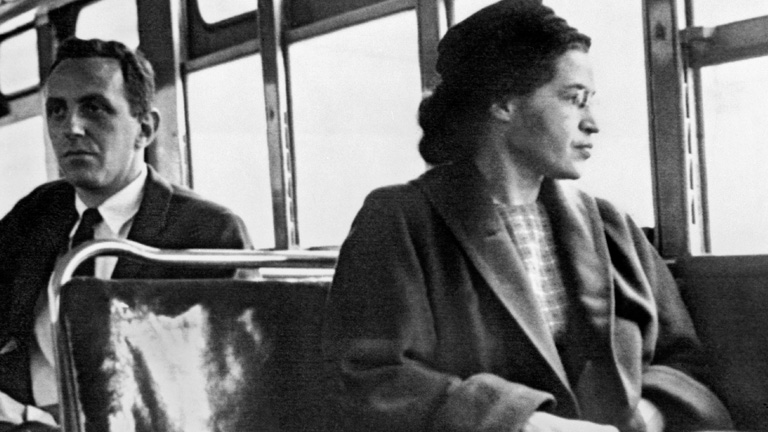So often when folks think of Black History Month, they envision a young MLK amid his “I Have a Dream,” Rosa Parks or if they’re feeling particularly radical, maybe even Malcolm X. And while they are rightful to think of these trailblazers, it is only the tip of the iceberg of contributions and activism that Black Americans and other Black nationals, of all ages, sizes, and backgrounds, have offered to this country.
In the discussion of America’s history and foundation, we talk about and praise characters such as George Washington, Abraham Lincoln and Thomas Jefferson, all of whom are noticeably white men. On a national level, we fail to recognize the many black citizens who were key in creating inventions (like Otis Boykin who developed the IBM computer), exploring the unexplored (Matthew Henson was one of the first people to successfully get to the North Pole) and organizing the efforts that led to success in the civil rights movement (Dorothy Height was affectionately called the matriarch of the civil rights movement.) Think back to the Industrial Revolution that pushed the world into a new era. We’re likely to see white faces working in these factories in old pictures, but what about the millions of black folks who labored all day, no doubt getting paid less than their white counterparts? What about the millions of black soldiers who fought in wars for a freedom they didn’t have? The intersecting identities these people had, being black, poor, a woman, made it easy for the country and world to forget them. Black History Month forces us to reckon with this history, honor it and realize that we still have plenty of work to do to correct the injustices that still follow us today.
Of course, there are still people who question the need for a Black History Month every year. They might even go so far to say that we should counter this observance with a White History Month. In the same spirit of being snarky, one could argue that with the face of America being overwhelmingly non-minority white women and men, every day is White History Month. The opportunity to observe this month-long celebration and honor the untold histories and stories of our ancestors and forefathers is one that we must dedicate ourselves, especially in a time of racial turmoil like the one we’re in. 2019 brought us a KKK rally in Ohio, blackface confessions in Virginia from the governor, and deaths of unarmed black men. In terms of racial progress, we are not nearly as far along as we think we are. The effects of colonization, slavery and segregation still follow and haunt black folks to this day and it is seen in our regular interactions. It’s seen when young black men are racially profiled by the police. It’s seen in the rejection of black people’s talents and their inability to rise in ranks in the workplace. It is seen when black people’s hair, a source of pride, is policed and shunned as seen in the most recent case of a Texas teen who was suspended and unable to graduate due to his locs. The journey to freedom is difficult and nowhere near over, and if there needs to be a federally-mandated month to get to the “woke” and the oblivious alike to recognize and join this journey, then so be it.
In America’s white and evangelical haze, we can forget that Black History is American history, but Black Awareness Month, as we at UM call it, is here to make sure that we never forget. The celebration of Black History Month began in the 1920s during the Harlem Renaissance. Let’s invoke the magical spirit of the Harlem Renaissance this February and all 2020 and remember why Black History Month still matters.
Editorials represent the majority view of The Miami Hurricane editorial board.






